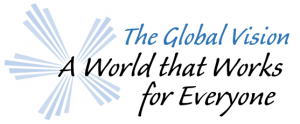One of the best-loved fairy tales, and the first feature-length film Walt Disney ever did, was Snow White.
It’s a typical tale of a girl who finds her Prince Charming, but as with all good fairy tales that have stood the test of time, there are truths embedded in the story.
Snow White has an “evil stepmother” who queen of the realm and obsessed with being the fairest in the land. It’s a mirror that keeps her informed of her position, until one day the mirror advises that the Queen has been usurped, and that the coveted position is now held by her stepdaughter.
This information sends the Queen into a pique of jealousy, which sets in a motion a course of action that eventually leads to the stepmother plotting unsuccessfully to kill Snow White. Ultimately, Snow White prevails, and marries her Prince Charming.
The critical piece to the tale is really the role of the mirror. Without the mirror, it would be hard for the story to unfold the way it did. It was the mirror that aided the stepmother in taking action that spiraled deeper and deeper based on her own troubled thoughts.
Ernest Holmes, author of The Science of Mind, wrote, “life is a mirror and will reflect back to the thinker what he thinks into it.”
Seen through an adult’s eye, we can see how this story has much to say about the way we choose to look at the world and what can happen when we take action based on our falsehoods and our mistaken lines of thinking.
This is the reason why some teachings emphasize that the world is an illusion. It’s not so much that nothing is real or tangible – it’s that the thoughts we subscribe to in our world act like a biofeedback loop. We see, we label, and we react.
The Queen’s thoughts were based on vanity. She then looked to the world to support her need to be the most beautiful. To use psychological terms – she projected her need for reaffirmation onto the world and when it didn’t respond the way she liked, she took action.
The world didn’t change. Snow White didn’t change. What changed was the Queen. She became darker, more evil than she herself probably would have imagined.
If we want to live a life that we want to experience, we need to take time to consider our thoughts before we take action. Are they true? Are they supported by the highest and the best for all concerned?
More importantly than that, it is valuable to discern our higher thought – what we know to be true of everything. Taking action from this higher place will always lead to growth and evolution of our experience. If the Queen had taken the time to contemplate her world from a higher place, she would have likely deepened her relationship with her stepchild rather than devolve into hatred.
But then there wouldn’t have been a story, would there?











